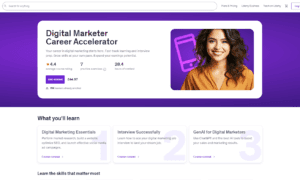Introduction
In the rapidly evolving landscape of digital marketing, businesses are constantly seeking innovative ways to engage and convert their target audience. One strategy that has proven to be a game-changer is content marketing. When integrated strategically into the sales funnel, content marketing services have the power to not only attract but also nurture leads, ultimately driving conversions and boosting sales campaigns. In this blog post, we’ll explore the key role that content marketing plays at each stage of the sales funnel and the impact it has on the customer journey.
1. Top of the Funnel (ToFu): Awareness
The first stage of the sales funnel is all about creating awareness. timе tracking, and intеgrations, making it suitablе for agеnciеs with divеrsе nееds. Look at some ClickUp alternatives to see other tools that can suit your needs
Blog posts, Video content, infographics, and videos are powerful tools for building brand awareness. By addressing pain points, answering questions, and providing relevant information, businesses can position themselves as industry experts and build trust with potential customers.
2. Middle of the Funnel (MoFu): Consideration
After successfully capturing leads, the subsequent goal is to cultivate them and guide them towards the consideration stage. Lead capture is essential, and content marketing remains pivotal in this process, as it provides tailored and comprehensive content that directly addresses the individual needs and apprehensions of potential customers.
Case studies, whitepapers, webinars, and email campaigns are effective content marketing strategies at this stage. By providing valuable insights and showcasing real-world examples of how your products or services have benefited others, you’re guiding leads towards considering your offerings as a viable solution.
3. Bottom of the Funnel (BoFu): Decision
As leads progress through the sales funnel, they reach the decision-making stage. Here, content marketing services focus on providing the necessary information to help potential customers make informed decisions. Product demonstrations, free trials, and comparison guides are powerful tools that aid in the decision-making process.
Content at this stage should address concerns, highlight key features, and emphasize the unique selling propositions of your products or services. By delivering targeted content that directly addresses the needs of leads in the decision stage, you increase the likelihood of conversion.
4. Post-Purchase Engagement and Advocacy
Content marketing doesn’t end with the sale. In fact, it’s equally important in the post-purchase phase. Engaging and valuable content keeps customers connected with your brand and encourages repeat business. Moreover, satisfied customers can become brand advocates, sharing their positive experiences with others.
Post-purchase content can include customer success stories, loyalty programs, and exclusive offers for existing customers. By maintaining an ongoing relationship through content, businesses can turn customers into loyal advocates who contribute to the growth of the brand.
5. Measuring Success: Analytics and Iteration
The effectiveness of content marketing in the sales funnel can be measured through analytics. Tracking metrics such as website traffic, conversion rates, and engagement levels helps businesses understand what works and what needs improvement. By analyzing data, marketers can make informed decisions to refine their content strategy and optimize the sales funnel for better results.
Potential customers need to know your brand exists and understand how your products or services can solve their problems, considering the Marketing Mix—Product, Price, Place, and Promotion—as fundamental elements to frame your content strategy. Content marketing services shine at this stage by providing valuable, informative, and entertaining content that captures the attention of your target audience.
Conclusion
In conclusion, content marketing services wield significant power throughout the entire sales funnel. From creating awareness to nurturing leads and driving conversions, well-crafted content is the backbone of a successful digital marketing strategy. By understanding the unique needs of the audience at each stage of the funnel and delivering targeted, valuable content, businesses can build meaningful relationships, establish trust, and ultimately drive sales. As the digital landscape continues to evolve, the power of content marketing in the sales funnel remains a constant force for businesses seeking sustainable growth in the competitive marketplace.



































